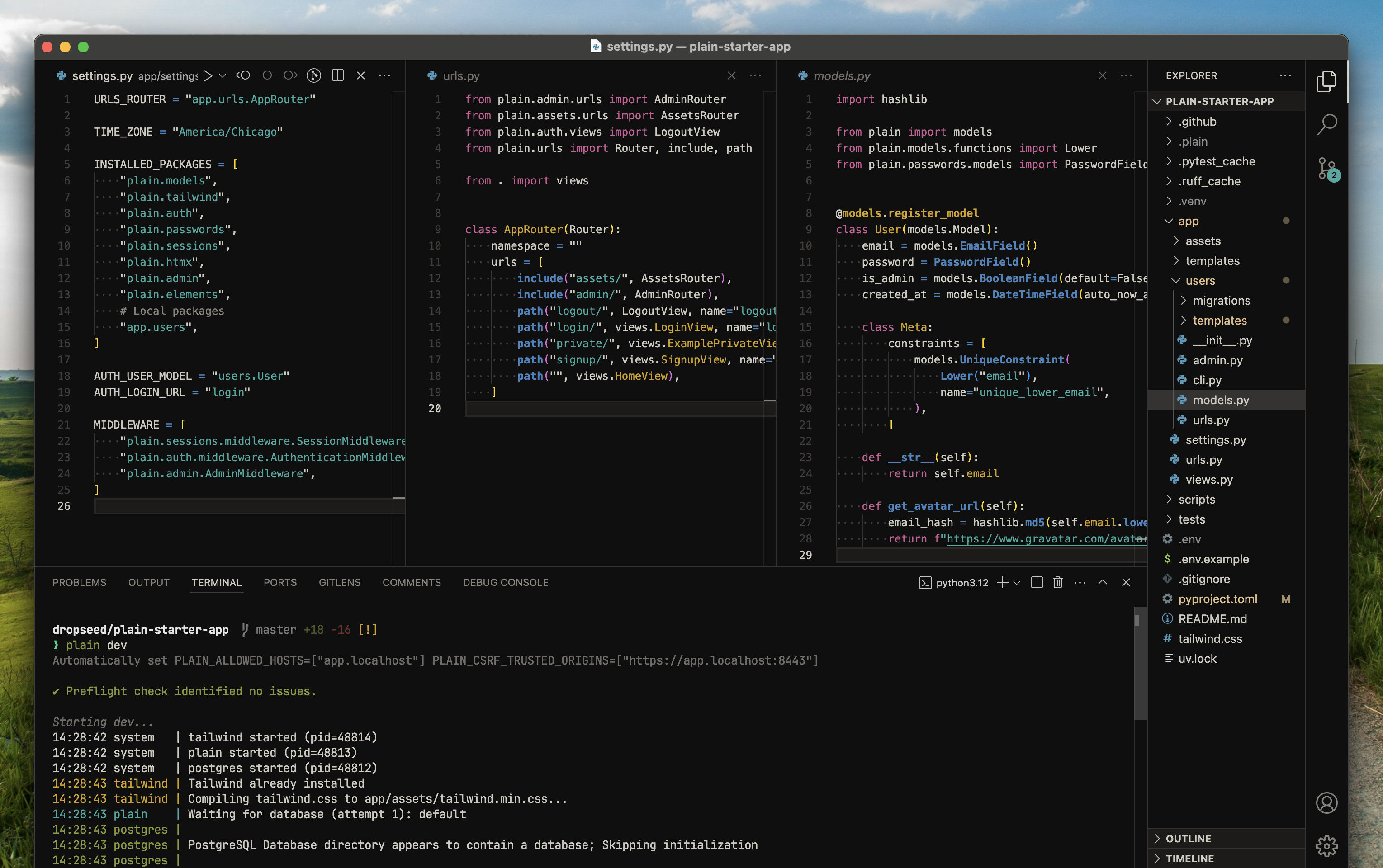What's good for humans is good for AI
Less magic. More clarity. Predictable patterns that work with Claude, Codex, and whatever comes next.
Type checking, linting, and formatting without the configuration, from Python to CSS and JS.
AI-assisted upgrades that understand breaking changes and update your code automatically.
Let AI agents make authenticated requests to your running app and inspect the results.
Tailored tools from dev through production
Dev server, observability, admin, and security tools that come standard.
Local server with auto-reload, Postgres, Tailwind, and more.
View docs →29 official opt-in packages for the most common needs.
Foundation
Backend
Frontend
Development
Production
20 years of Django
with a fresh take on what's next
Plain is a fork of Django, driven by ongoing development at PullApprove. No backwards compatibility to maintain means we can break things, iterate fast, and peer into the future without consequence.

